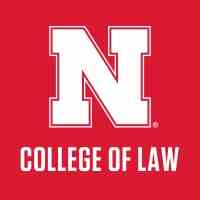Description:
Description of Work:A Law School seeks a lecturer to develop and direct a new Innocence Clinic. The clinic, supported by a grant from the Bureau of Justice Assistance, will focus on reviewing, investigating, and litigating post-conviction claims of actual innocence.
The clinic director must maintain an active caseload while working with and providing oversight for law students conducting records collection and investigation. Casework includes examining issues related to eyewitness misidentification, false confessions, faulty forensic science, and other common causes of wrongful conviction. In each case, the clinic director will review existing case files, pursue new evidence that could establish innocence, and litigate for relief where appropriate.
Duties and Responsibilities:
- Review incoming files and maintain a caseload of prospective innocence cases.
- Investigate post-conviction claims of innocence, including reviewing trial and appellate records, engaging with experts, interviewing witnesses, and requesting records.
- Supervise and manage law students in case review investigation, records collection, and case analysis and litigation; conduct weekly case meetings; guide investigations; oversee legal research and drafting; and act as a primary case contact.
- Contribute to substantive classroom teaching on issues related to wrongful convictions.
- Engage in legal writing of DNA motions, habeas petitions, post-convictions motions, and case memoranda.
- Litigate for post-conviction relief in state and federal court.
This is a full-time grant-funded position and includes a two-year appointment as a lecturer. The continuation of the appointment after that time will depend on the candidate's success and continued funding. To ensure the clinic can be offered in the fall semester of 2024, the director should be available to start as early as possible. Salary is commensurate with experience.
The University of Nebraska-Lincoln seeks to attract and retain a high-performing and diverse workforce in which employees' differences are respected and valued to better meet the varying needs of the diverse populations we serve. The university fosters a diverse and inclusive work environment that promotes collaboration so that all individuals are able to participate and contribute to their full potential.
As an EO/AA employer, the University of Nebraska does not discriminate based on race, color, ethnicity, national origin, sex, gender, pregnancy, sexual orientation, gender identity or expression, religion, disability, age, genetic information, veteran or military status, marital status, and/or political affiliation in its programs, activities, or employment. See https://www.unl.edu/equity/notice-nondiscrimination.
Minimum Required Qualifications:
- Juris Doctor from an ABA-accredited institution.
- Member of the Nebraska Bar in good standing or the ability to become licensed in Nebraska.
- Substantial, progressively responsible experience in the practice of criminal law and/or post-conviction/habeas corpus litigation.
- Excellent research and writing skills.
- Demonstrated ability to prioritize tasks, manage multiple projects at a time, work well under pressure, and meet deadlines in a fast-paced environment.
- Ability to understand and manage complex factual and legal issues and supervise litigation processes.
- Strong interest in teaching, mentoring, and supervising law students.
Preferred Qualifications:
- Experience supervising and/or mentoring law students or lawyers.
- Teaching experience, particularly in a seminar, clinical, or skills development setting.
- Familiarity with state and federal court systems in Nebraska.
- Experience with an innocence project or clinic.
